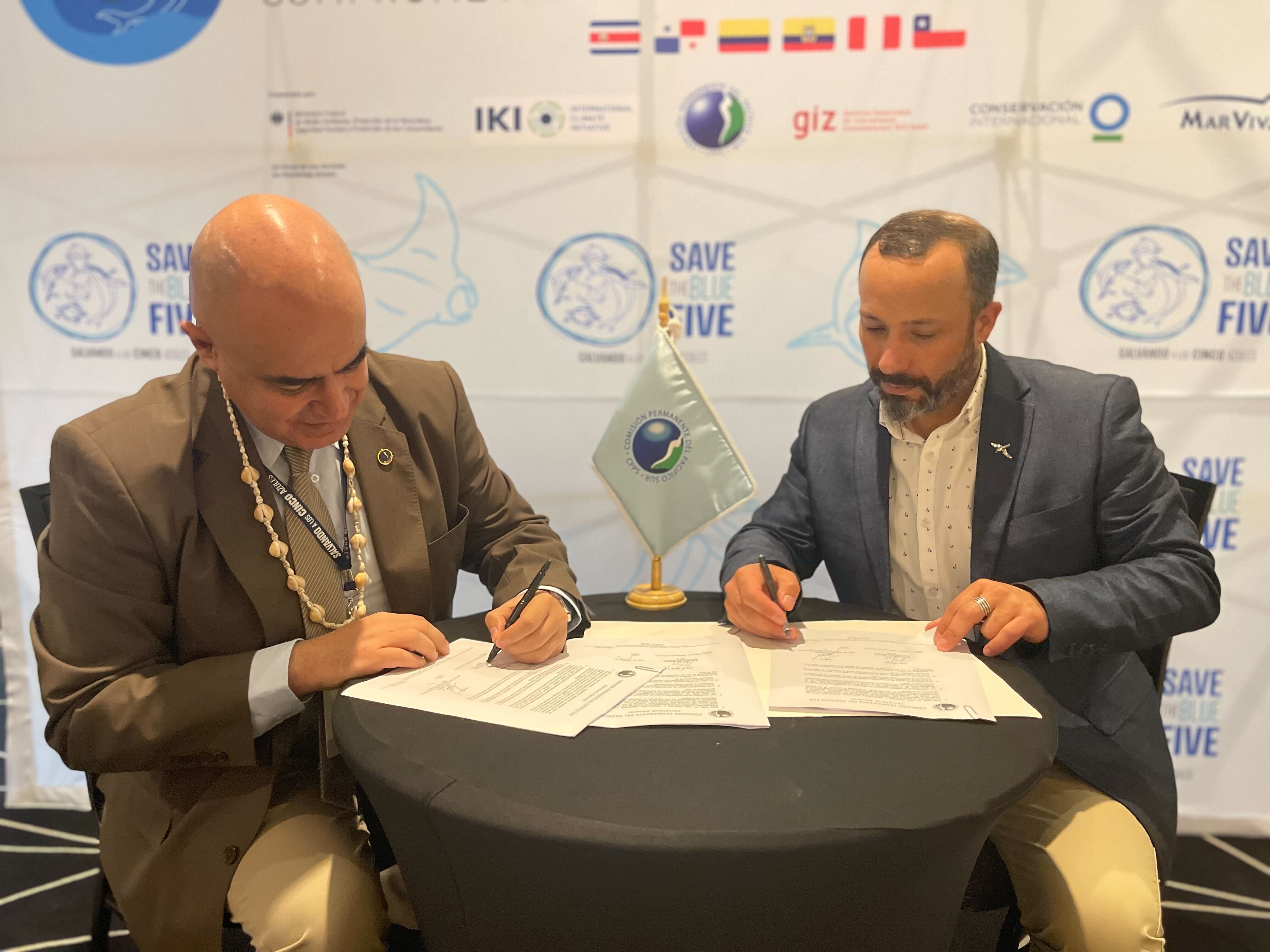April 16, 2025
What works to save species from extinction?
Conservation works to save species from extinction--and it works really, really well!
We use cookies to help you navigate efficiently and perform certain functions. You will find detailed information about all cookies under each consent category below.
The cookies that are categorized as "Necessary" are stored on your browser as they are essential for enabling the basic functionalities of the site. ...
Necessary cookies are required to enable the basic features of this site, such as providing secure log-in or adjusting your consent preferences. These cookies do not store any personally identifiable data.
Functional cookies help perform certain functionalities like sharing the content of the website on social media platforms, collecting feedback, and other third-party features.
Analytical cookies are used to understand how visitors interact with the website. These cookies help provide information on metrics such as the number of visitors, bounce rate, traffic source, etc.
Performance cookies are used to understand and analyze the key performance indexes of the website which helps in delivering a better user experience for the visitors.
Advertisement cookies are used to provide visitors with customized advertisements based on the pages you visited previously and to analyze the effectiveness of the ad campaigns.
Looking to make an impact this Earth Month? Here’s how.

Panama–Today, November 22, 2024, Island Conservation’s Head of Operations in Latin America, José Cabello, signed a Memorandum of Understanding (MOU) with the Acting Secretary General of the Permanent Commission for the South Pacific (CPPS), Mauricio Pryor Moreno. This historic agreement aims to protect the marine and coastal areas of the Southeast Pacific, which are facing significant threats to their biodiversity and ecosystem services.
Under the MOU, both Island Conservation and CPPS will collaborate on various initiatives to conserve and manage the marine environment in the Southeast Pacific. The agreement emphasizes the importance of joint regional efforts to protect the habitats of multiple species, particularly those that are highly migratory and already endangered.
“This Memorandum of Understanding sets forth an exciting precedent for future collaboration to protect the key ecosystems of the southeast Pacific,” said José Cabello, Head of Operations in Latin America at Island Conservation. “The migratory birds, fish, and coastal ecosystems here are under major threat of extinction and depletion, and the collaborative protection and information sharing set forth by this agreement will help everyone in the region build capacity to save these important areas.”

The MOU outlines several key areas of cooperation, including capacity building through exchanges of experiences and lessons learned, training sessions, and workshops. It also includes the exchange of information, reports, documents, and publications on topics of mutual interest, as well as the exchange of technical and scientific data and information supporting the work and objectives of both participants.
Island Conservation and CPPS recognize the significance of protected marine and coastal areas in providing ecosystem services to various sectors of society in the region. They also acknowledge the threat invasive species pose to these areas, particularly island ecosystems.
By conducting information exchange through their General Secretariat (CPPS) and the Island Conservation Executive Directorate, both organizations aim to identify cooperation opportunities focused on protecting and conserving the marine environment and coastal areas of the Southeast Pacific.
This MOU marks a crucial step towards safeguarding the Southeast Pacific’s marine and coastal biodiversity for present and future generations. Through joint efforts and information sharing, Island Conservation and CPPS are committed to ensuring the health, food security, and well-being of the region.
//
//
For media inquiries:
Sally Esposito, Strategic Communications Director, Island Conservation, sally.esposito@islandconservation.org
About Island Conservation: Island Conservation’s mission is to restore islands for nature and people worldwide and we collaborate with local communities, government management agencies, and conservation organizations on islands with the greatest potential for preventing the extinction of globally threatened species. Island Conservation is a United States-based 501(c)(3) charitable organization that restores islands by removing introduced, damaging invasive species and accelerating the recovery of native plants and animals. We utilize innovative technology and techniques to work more efficiently and showcase the many benefits of holistically restored islands for biodiversity, climate resilience, ocean health, and sustainable development across the globe. Visit us at islandconservation.org.
About the Permanent Commission for the South Pacific: The Permanent Commission for the South Pacific (CPPS) is an intergovernmental body, created in 1952, by agreement between Chile, Colombia, Ecuador, and Peru. The CPPS is a legal entity under international law in accordance with the provisions of the Paracas Convention, Peru, of January 14, 1966.
Para consultas de prensa:
Sally Esposito, Directora de Comunicaciones Estratégicas, Island Conservation, sally.esposito@islandconservation.org
Sobre Island Conservation: La misión de Island Conservation es restaurar islas para la naturaleza y las personas en todo el mundo. Colaboramos con comunidades locales, agencias gubernamentales de manejo y organizaciones de conservación en islas con el mayor potencial para prevenir la extinción de especies globalmente amenazadas. Island Conservation es una organización benéfica estadounidense 501(c)(3) que restaura islas eliminando especies invasoras introducidas y dañinas, acelerando la recuperación de plantas y animales nativos. Utilizamos tecnología y técnicas innovadoras para trabajar de manera más eficiente y demostrar los múltiples beneficios de las islas restauradas de manera integral para la biodiversidad, la resiliencia climática, la salud de los océanos y el desarrollo sostenible a nivel mundial. Visítanos en islandconservation.org.
Sobre la Comisión Permanente del Pacífico Sur: La Comisión Permanente del Pacífico Sur (CPPS) es un organismo intergubernamental creado en 1952 mediante acuerdo entre Chile, Colombia, Ecuador y Perú. La CPPS es una entidad jurídica bajo el derecho internacional, conforme a las disposiciones de la Convención de Paracas, Perú, del 14 de enero de 1966.
Check out other journal entries we think you might be interested in.
Notifications